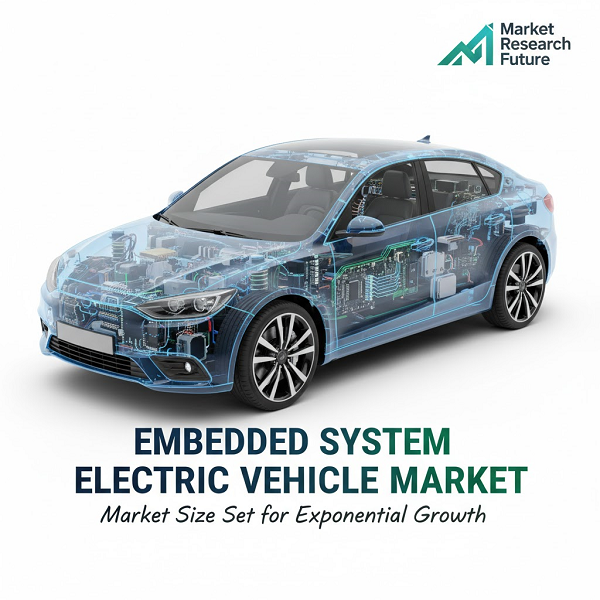Market Research Future (MRFR) has published a cooked research report on the “Global Embedded System for Electric Vehicle Market” that includes data from 2022 to 2035.
The Embedded System for Electric Vehicle Market is estimated to register a CAGR of 15.4% during the forecast period of 2025 to 2035 and is projected to reach USD 48.39 Billion by 2035, up from USD 10.01 Billion in 2024.

embedded system for electric vehicle Market Highlights
The global embedded system for electric vehicle market is witnessing rapid growth, driven by the accelerating transition toward electric mobility. Environmental concerns, rising crude oil prices, and advancements in smart vehicle technologies continue to propel demand in 2025. Embedded systems play a vital role in enhancing EV performance, safety, and connectivity, making them indispensable components in modern automotive design.
Major economies such as the U.S., China, Norway, and India are leading the adoption of electric vehicles, boosting the need for advanced embedded systems for efficient energy management and safety control. In 2022, North America held a 45.8% market share, driven by strong EV penetration, stringent safety norms, and robust R&D investment. Europe and Asia-Pacific are emerging as high-potential markets, with growing EV production in Germany, the U.K., China, Japan, and India fueling embedded system integration.
Segment Analysis
The global embedded system for electric vehicle market has been segmented based on component, application, and region. By component, the market includes sensors, microcontroller units (MCU), transceivers, and memory devices. Each of these components plays a critical role in ensuring the seamless operation of electric vehicles by managing data communication, processing, and power distribution. Based on application, the market is categorized into infotainment & telematics, body electronics, and safety & security. Among these, the safety & security segment dominated the market in 2022, driven by the increasing regulatory mandates for airbags, anti-lock braking systems (ABS), and other safety technologies. Meanwhile, the infotainment & telematics segment is anticipated to witness robust growth through 2035, fueled by rising consumer demand for enhanced in-vehicle connectivity, navigation systems, and entertainment features that enhance the driving experience.
Regional Analysis
By region, the market is divided into North America, Europe, Asia-Pacific, the Middle East & Africa, and South America. North America continues to lead the global market, supported by strong EV infrastructure, government incentives, and early adoption of advanced driver assistance systems (ADAS). Europe is expanding rapidly with increased EV production and a focus on sustainability and safety regulations, while Asia-Pacific is expected to witness the fastest growth during the forecast period, driven by supportive government initiatives in India, China, and Japan aimed at promoting local EV manufacturing and embedded technology development.
Key Players
MRFR recognizes the following companies as the key players in the Global Embedded System for Electric Vehicle Market — Robert Bosch (Germany), Continental AG (Germany), Panasonic (Japan), Texas Instruments (U.S.), Mitsubishi Electric (Japan), and DENSO (Japan). These companies are heavily investing in R&D, product innovation, and strategic collaborations to enhance system integration, lower production costs, and strengthen their global market presence.
Market Research Analysis
Despite strong growth prospects, the industry faces challenges such as limited aftermarket support and high initial costs associated with EV components and embedded systems. However, expanding production capacity, advancements in IoT-enabled software, and AI-based diagnostics are mitigating these concerns. Overall, the market outlook for embedded systems in electric vehicles remains highly positive through 2035, supported by technological innovations, sustainability goals, and favorable government policies. As the automotive industry progresses toward full electrification, embedded systems will remain central to improving vehicle intelligence, energy efficiency, and passenger safety, shaping the future of electric transportation.
Key Findings of the Study
- The Global Embedded System for Electric Vehicle Market is expected to reach USD 48.39 Billion by 2035, at a CAGR of 15.4% during the forecast period.
- North America held the largest market share in 2022.
- Based on Application, the Safety & Security segment dominated in 2022.
- Asia-Pacific is expected to record the fastest growth rate during 2025–2035.
- Key players include Robert Bosch, Continental AG, Panasonic, Texas Instruments, Mitsubishi Electric, and DENSO.